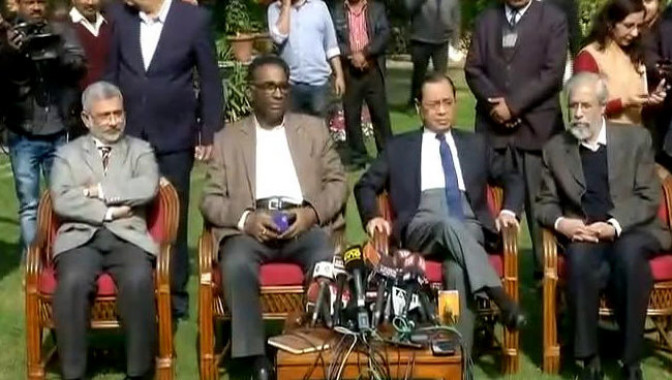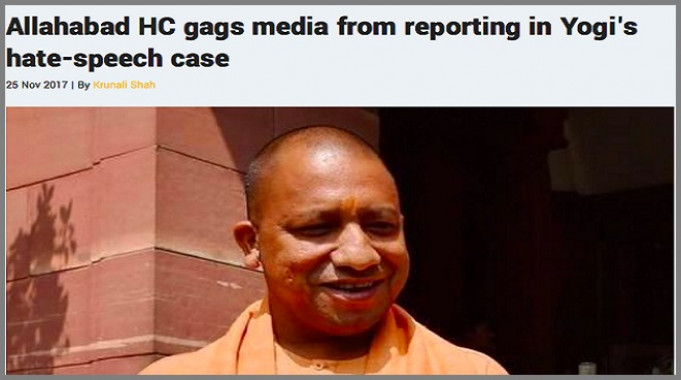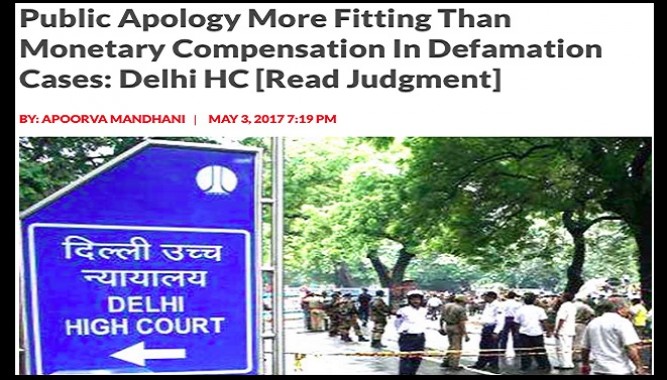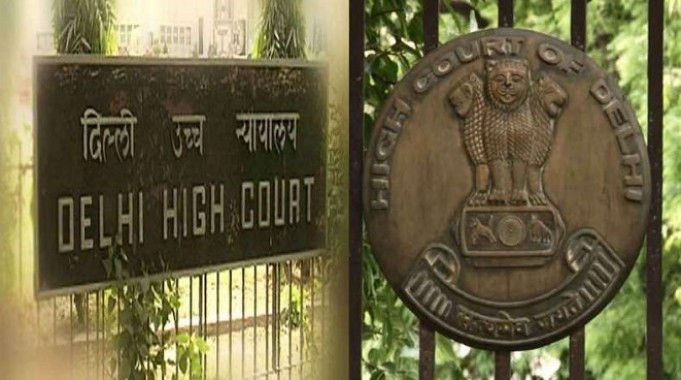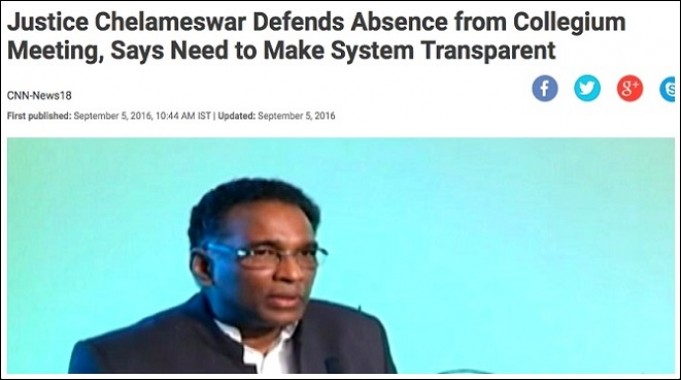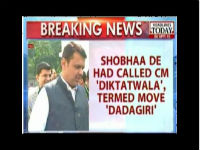BY PRASHANT THIKKAVARAPU|
IN CENSORSHIP
|13/01/2018
The Supreme Court’s promiscuous use of contempt laws towards criticism has led to the volcanic eruption of a press conference.
BY PRASHANT THIKKAVARAPU|
IN CENSORSHIP
|26/11/2017
Since the proceedings involve the CM and serious criminal allegations against him, public interest surely outweighs concerns about inaccurate reporting?
BY PRASHANT THIKKAVARAPU|
IN JUDGEMENTS
|06/06/2017
A High Court judge says an apology for defamation is often better than damages. The argument is intriguing, but flawed.
BY PRASHANT THIKKAVARAPU|
IN LAW AND POLICY
|27/02/2017
The distinction between self-imposed ethics and legal remedies is being blurred by an activist judiciary which has begun to issue writs to private organizations.
BY PRASHANT THIKKAVARAPU|
IN MEDIA PRACTICE
|30/09/2016
The Indian Express’ tendency to rely on anonymous sources has surfaced again, this time in a ‘nudge, nudge, wink wink’ piece on Justice Chelameshwar
BY PRASHANT THIKKAVARAPU|
IN MEDIA FREEDOM
|25/10/2015
But even after codification the legislature can legally codify its privileges in a manner which clearly violates fundamental rights.
BY PRASHANT THIKKAVARAPU|
IN LAW AND POLICY
|06/01/2015
Sloppiness by journalists and misuse of contempt powers by judges results in poor reporting.
BY PRASHANT THIKKAVARAPU|
IN MEDIA PRACTICE
|28/06/2014
The truly astonishing aspect of this episode is the fact that the Central Government achieved its goal without having a single one of its ministers or bureaucrats speak on the record.
BY PRASHANT THIKKAVARAPU|
IN DEFAMATION
|21/04/2014
Once the SC has created a right of privacy over all events not in the public record, it opens the door to censorship of any reporting on such events.
Subscribe To The Newsletter


